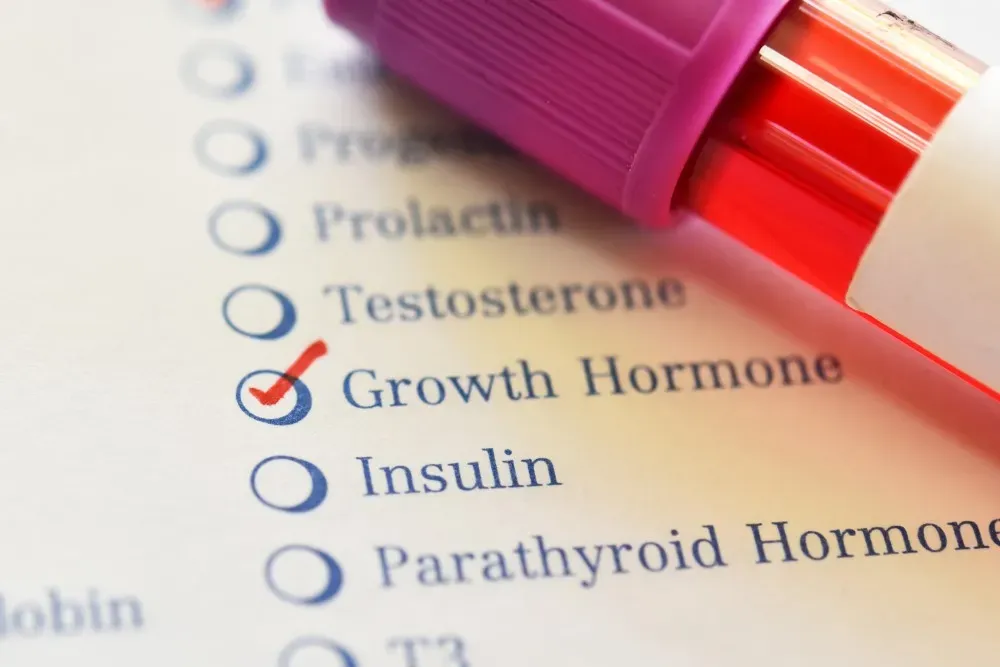| Successfully undergoing growth hormone therapy requires diligent adherence to prescribed dosages and administration schedules, regular monitoring of growth and overall health by a medical professional, including blood tests and physical examinations, open communication with your doctor about any side effects experienced (such as joint pain, fluid retention, or insulin resistance), maintaining a healthy lifestyle with balanced nutrition and regular exercise, and careful consideration of potential drug interactions with other medications. Consistent follow-up appointments are crucial for optimizing treatment and managing potential complications. 
Essential Guidelines for Those Undergoing Growth Hormone Therapy
Growth hormone therapy (GHT) requires careful management and adherence to specific guidelines for optimal results and to minimize potential side effects. These guidelines should be discussed thoroughly with your doctor, who will tailor them to your individual needs and circumstances. This information is for general knowledge and should not replace professional medical advice.
I. Medical Monitoring: - Regular Check-ups: Frequent monitoring is crucial. Your doctor will schedule blood tests to check your hormone levels, liver function, blood sugar, and lipid profile. This allows for dosage adjustments and early detection of potential problems.
- Height and Weight Tracking: Regular measurements are vital to assess growth response in children and overall health in adults.
- Bone Density Scans (DEXA): May be recommended to monitor bone health, especially in adults, as GHT can impact bone density.
- Vision Exams: GHT may affect vision in some individuals; regular eye exams are often advisable.
II. Medication Management: - Injection Technique: Proper injection technique is paramount to ensure effective absorption and minimize local reactions. Your doctor or nurse will provide thorough training.
- Dosage Adherence: Strictly follow your prescribed dosage and schedule. Do not adjust the dose without consulting your doctor.
- Medication Storage: Store your growth hormone as directed by the manufacturer to maintain its potency.
- Reporting Side Effects: Immediately report any unusual side effects, such as joint pain, swelling, fluid retention, or changes in blood sugar levels, to your doctor.
III. Lifestyle Considerations: - Balanced Diet: Maintain a healthy, balanced diet rich in fruits, vegetables, and lean protein. This supports overall health and contributes to optimal growth response.
- Regular Exercise: Engage in regular physical activity. Exercise promotes growth, improves overall health, and can help manage potential side effects like weight gain. Discuss appropriate exercise regimens with your doctor.
- Sleep Hygiene: Growth hormone is primarily secreted during sleep. Prioritize adequate sleep to maximize the therapy's effectiveness.
- Hydration: Drink plenty of water to help your body process the hormone effectively.
- Avoid Smoking and Excessive Alcohol Consumption: These habits can negatively impact your overall health and potentially interfere with the effectiveness of GHT.
IV. Understanding Potential Side Effects:
While GHT is generally safe, potential side effects can include: - Joint pain: Common, often manageable with pain relief medication.
- Fluid retention: Can lead to swelling in hands and feet.
- Increased blood sugar levels: Requires monitoring, particularly for individuals with diabetes or a family history of diabetes.
- Carpal tunnel syndrome: Compression of the median nerve in the wrist.
- Increased risk of certain cancers (rare): Regular monitoring is necessary.
V. Communication with Your Healthcare Team: - Open Communication: Maintain open communication with your endocrinologist and other members of your healthcare team. Don't hesitate to ask questions and express concerns.
- Regular Follow-up: Attend all scheduled appointments and follow-up visits.
This information is intended for general knowledge and does not constitute medical advice. Always consult your healthcare provider for personalized guidance and treatment related to growth hormone therapy. They can address specific questions based on your individual medical history and needs.
Tags: Growth Hormone Growth Hormone Therapy Healthcare Joint Health Kidney Disease Medical Guidelines Medication Management Pediatric Endocrinology Treatment Safety  
|  1,399
1,399  0
0  0
0  3350
3350 